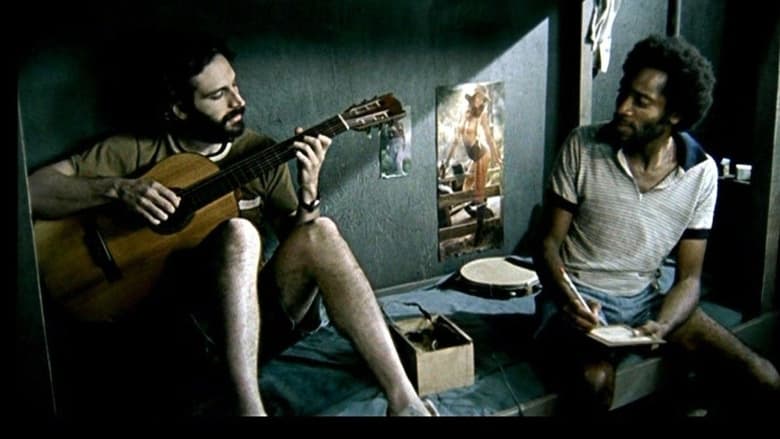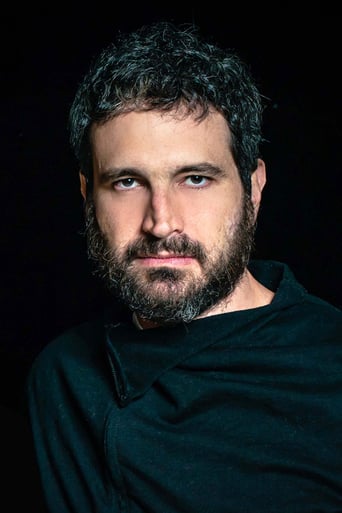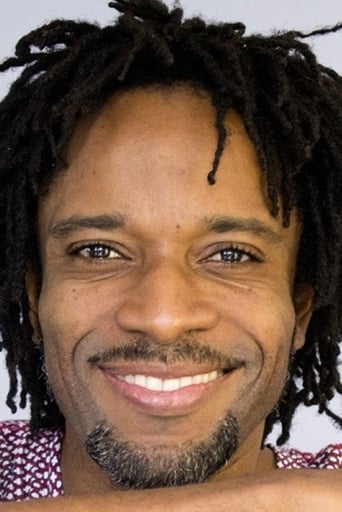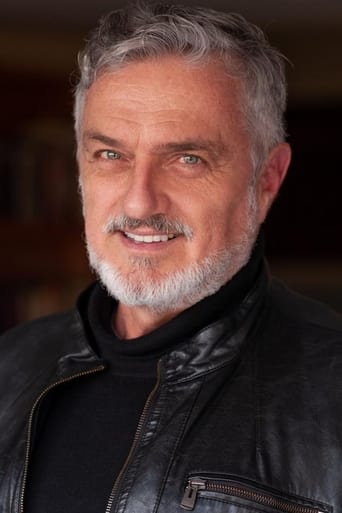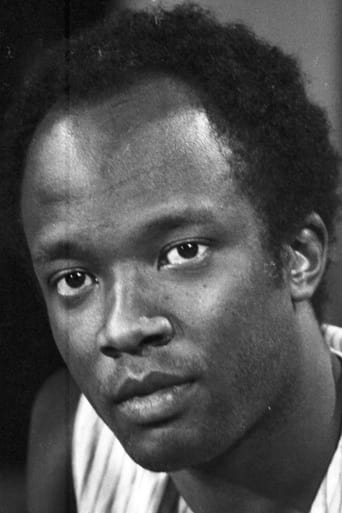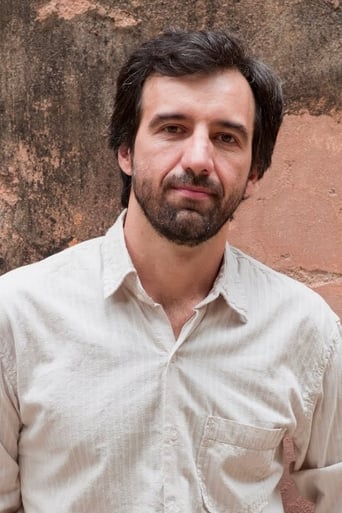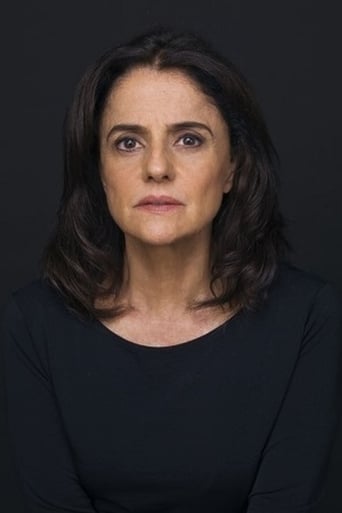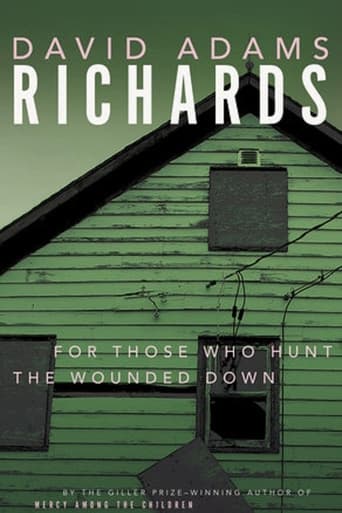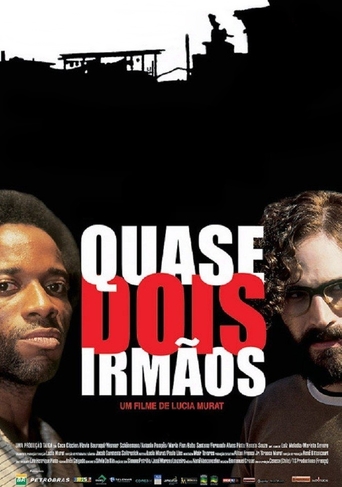
The strange friendship between two men of opposite social classes. Miguel is a senator. His childhood friend Jorge is a major drug-dealer. In the 1970s, they meet in prison: Miguel was there for political reasons, and Jorge, as a common criminal.
Similar titles


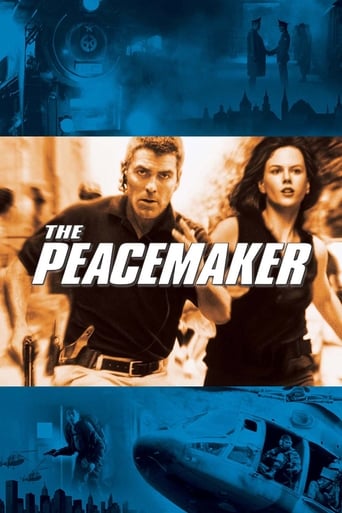


Reviews
Too much of everything
Simply Perfect
A lot more amusing than I thought it would be.
I am only giving this movie a 1 for the great cast, though I can't imagine what any of them were thinking. This movie was horrible
This is of course in my humble opinion. After seeing City of God, I thought I understood Brazil pretty well. Not so, it seems. Whereas City of God focuses on the life in the favelas and the rise of violence in the streets, explaining in a humoristic manner why criminals are getting younger, Almost Brothers does an excellent job at describing how the criminals organize themselves so well, even with the masterminds in the jail. It all started during Brazil's dictatorship, when left-leaning intellectuals have been thrown in jails together with common criminals. The film has its symbolism, indicating how the Brazilians - no matter how idealistic and tolerant in theory - have reached the conclusion that rich and poor shall be separated. The extra features on the City of God DVD actually explain how the upper-middle class of Brazil prefer to build houses for the poor in suburbs far away from their neighborhoods, hoping they will not visit. "The only government agencies entering the favelas are the police" says one of the interviewees, raising the question if there is actually something that can be done about Brazil. City of God ends in a rather optimistic tone, while Almost Brothers reminds me of the tragedy in Steven Soderbergh's Traffic. The movie alludes to the never-ending cycle of violence and it offers absolutely no resolution, other than a weak comment from the grandmother watching her granddaughter recovering on the hospital bed: "Everything is going to be OK." Is it though? The movie seems to only show a divided society. The solution? To be determined.
I watched this movie by my father's recommendation, but I am not disappointed at all. First of all,this film show us in a great way, how the ''Comando Vermelho'', a big criminal gang from Rio de Janeiro, was formed and how the guys learned how to organize their criminals and teams. I think this movie will mark mainly brazillians, special the ones from Rio de Janeiro like myself, but this is not a reason why foreigners should not watch,specially if they liked ''Cidade de Deus''. Caco Ciocler already is considered a great actor,as well as Marieta Severo and Antônio Pompêo,but this movie have show me a new excellent actor: Flavio Bauraqui(who plays Jorginho in the 70's)
In the 70's, the military dictatorship sent many political prisoners to the Presidio da Ilha Grande ("Great Island Prison) together with common prisoners, using the National Security Law, with the intent of reducing their moral and integrity. With the exchange of information between these two different worlds, the criminals learned how to organize and this was the origin of the presently huge criminal gangs in Rio de Janeiro (such as the "Commando Vermelho" (the IMDb dictionary changes the correct spelling with only one "m"), "Terceiro Commando" etc.). Director and screenplay writer Lúcia Murat, who was a member of the Brazilian guerrilla arrested and tortured in prison by the military dictatorship, discloses this powerful and realistic view of the two worlds that does exist in the Brazilian society: the violent underworld of the slums and the repressed world of the streets. Using the friendship of a white and a black man along decades, in a non-linear and very original screenplay, Lúcia Murat follows the parallel lives of Miguel and Jorginho in the 50's, when they were children; later in the 70's, when the political prisoner Miguel meets Jorginho in the prison; and in the present days, when Miguel is a deputy of the legislative body, and the still imprisoned Jorginho is the leader of a criminal gang. In her raw and real analytical view of our society, the police supply the weapons to the criminals; a deputy has to ask for permission to the lord of the slum to implement a social program to the community. The tagline of this movie is amazing: "We all have two lives: the one we dream of and the one we live". The beautiful title song "Quase Irmãos" ("Almost Brothers") of Naná Vasconcelos and sang by Luiz Melodia and Naná Vasconcelos magnificently completes this excellent movie. Last but not the least, in accordance with the cover of the DVD, this movie was awarded in the following festivals: (1) Rio Festival: Best Director, Best Actor, Best Latin-American Film, Fipresci Prize; (2) Mar del Plata Festival: Best Iberia-American Film, Best Film (Public); (3) Havana Festival: Best Montage and Best Music Score; (4) Official Section of Toronto and Montreal; (5) Paris Festival: Best Film (Public); (6) Amazonas Film Festival: Best Film. I do not understand why this great film has not been indicated by Brazil to the Oscar. My vote is nine.Title (Brazil): "Quase Dois Irmãos" ("Almost Two Brothers")
I saw this last night and thought it was brilliant and beautiful. It's like a deeper, more realistic version of "The City of God" with more social context. The audience applauded at the end of last night's showing, which hasn't happened too often at other festival showings I've been to. Lucia Murat, the director, was there last night. She told us that both she and her husband were left-wing activists and political prisoners in the 1970s under the military rule. The prison part of the story is based partly on her and her husband's experience. She worked with the author of the book version of "City of God" to get nuances of the slum life right (Paulo Lins, author of "Cidade de Deus"). Many of the child actors in the movie actually live in the slums. The use of non-linear narration, the interlacing of several stories from different time periods (like in "21 Grams"), is confusing at first. It's a little hard to keep track of who's who. But if you pay attention and bear with it for the first half hour, the confusion does clear up. I think this mixing of stories is done for more than just theatrics. It reminds us that these people from different worlds, rich and poor, black and white, are really related and interdependent.
Top Streaming Movies











